main navigation start
Toggle navigation
- Resources
- Search
main content start
Search Filters
Sharex Sites List
Topics
Topics
- Accountability (3)
- Adolescents (36)
- Birth Registration (1)
- Breastfeeding (20)
- Cash Transfer (2)
- Child and youth participation (13)
- Child Health (234)
- Child labour (4)
- Child marriage (18)
- Child Poverty (10)
- Child Protection (49)
- Children in alternative care (5)
- Child Rights (17)
- Climate, Energy and Environment (47)
- Community engagement (89)
- Convention on Child Rights (2)
- COVID-19 (122)
- Data/Evidence (114)
- Disability (95)
- Disaster Risk Reduction (14)
- Discrimination (2)
- Early Childhood Development (55)
- Education (28)
- Emergency Response (2)
- Female genital mutilation (25)
- Gender (49)
- Gender Based Violence (17)
- HIV/AIDS (41)
- Humanitarian Response (10)
- Immunization (131)
- Infant and Young Child Nutrition (18)
- Innovation (35)
- Justice for children (4)
- Knowledge Exchange and Sharing (34)
- Knowledge Management (41)
- Legal identity (3)
- Maternal Health (55)
- Mental Health (26)
- Migrant and displaced children (12)
- Migration (10)
- Newborn Health (60)
- Nutrition (156)
- Online protection (1)
- Partnerships (8)
- Peacebuilding (2)
- Polio (6)
- Poverty (1)
- Psycosocial support (7)
- Sexual exploitation and abuse (11)
- Sexual Violence (9)
- Social Behaviour Change (58)
- Social Policy (20)
- Social Protection (15)
- Social service workforce (81)
- Sustainable Development Goals (8)
- Technology for Development (13)
- UNICEF Programming (37)
- UN Water Conference (6)
- Urban (8)
- Violence against children and women (15)
- Violence in schools (2)
- (-) Water. Sanitation and Hygiene (194)
Resource Type
Document Type
- Academic journal articles (including pre-print submissions) (0)
- Agreements (1)
- Case studies, lessons learned, field notes (84)
- Corporate reporting (0)
- Data set (0)
- Evaluations (4)
- Forms and templates (0)
- Guidelines/SOPs/checklists (7)
- Human Interest Stories (0)
- Major publication (flagship, advocacy etc.) (7)
- Meeting documents and reports (6)
- Mobile Application (0)
- Monitoring reports (1)
- Newsletters (0)
- None (2)
- Online learning/e-learning course (0)
- Other technical publications and reports (7)
- Policy brief/briefing notes/fact sheets/FAQs (12)
- Posters, brochures, pamphlets, flyers (2)
- Presentation (1)
- Research report (16)
- Situation analyses (2)
- Situation reports (6)
- Speeches and Statements (1)
- Staff working paper/discussion paper (2)
- Strategies and Frameworks (7)
- Systematic reviews, knowledge mappings, evidence synthesis (0)
- Technical note (4)
- Toolkit/Toolbox (3)
- Training materials (19)
- Video (0)
Country
Published Date Range
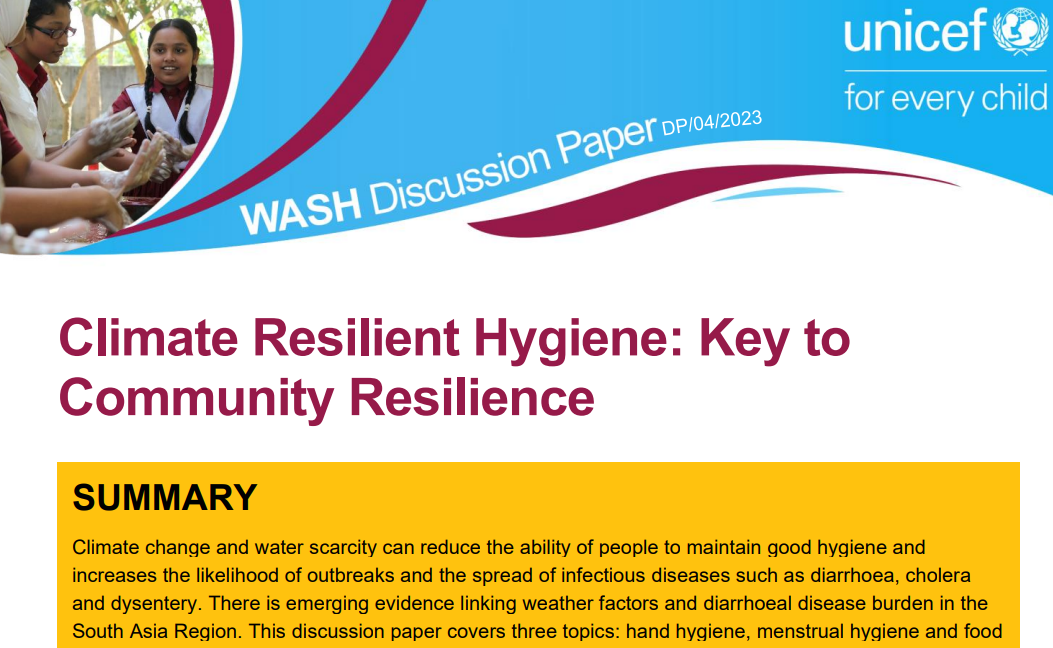
Staff working paper/discussion paper
This discussion paper covers three topics: hand hygiene, menstrual hygiene and food hygiene and considers how climate change affects vulnerable populations in households and, to a lesser extent, insti...
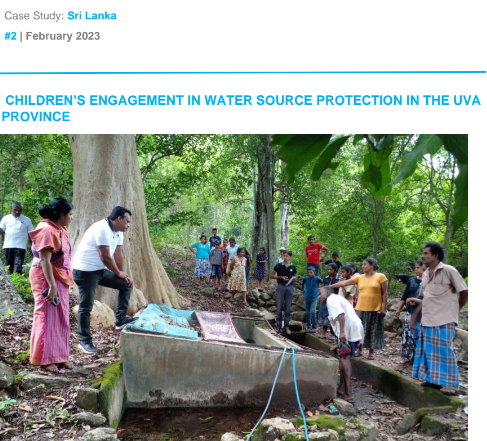
Case studies, lessons learned, field notes
To address the knowledge gap and enhance the protection of water sources, UNICEF is supporting the Iva province with two key interventions as part of
the UNSDG-funded project. The first intervention i...
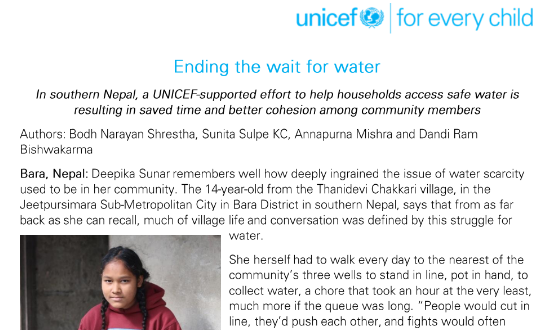
Case studies, lessons learned, field notes
In southern Nepal, a UNICEF-supported effort to help households access safe water is resulting in saved time and better cohesion among community members.
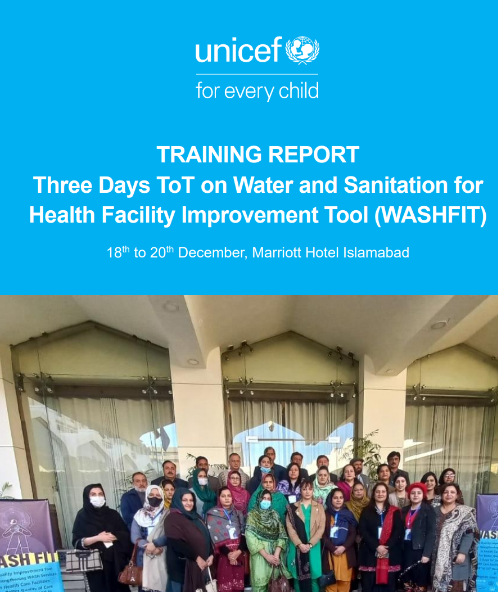
Training materials
The three-day training on WASH FIT for healthcare facility staff, facilitated by UNICEF, PCRWR, and AWF Consultants in Pakistan, is a commendable effort. It indicates a commitment to addressing the ch...

Case studies, lessons learned, field notes
This compendium of exemplary, real-life scenarios has been developed to promote the crosspollination of ideas and knowledge, and to inspire those who are committed
to advancing the child-friendly loca...

Toolkit/Toolbox
This WASH Terminology guide. provides definitions of all key WASH terms that are used for programming across all UNICEF supported WASH programmes, The guide can also be a good resource for the broader...
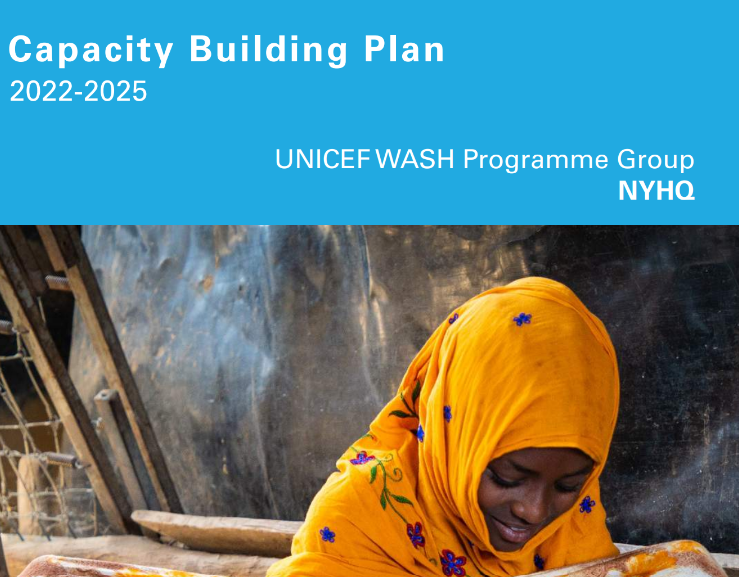
Strategies and Frameworks
Building capacity and skills of its professional workforce as well as national partners within the sector building blocks is an ongoing priority
for UNICEF. This Capacity Building Plan outlines the vi...
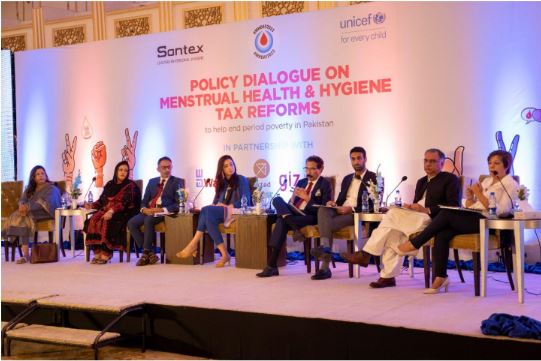
Meeting documents and reports
This Policy Dialogue on Menstrual Hygiene Management (MHM) Tax Reforms involved discussions on the taxation policies related to menstrual hygiene products. The aim of such dialogues is to address the ...
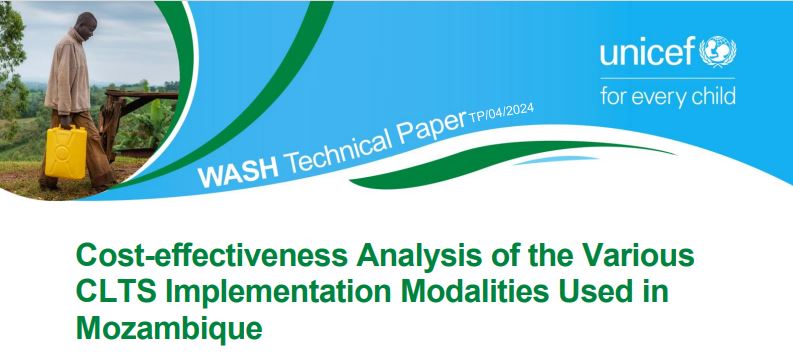
Other technical publications and reports
This technical paper evaluates the cost-effectiveness of various Community-Led Total Sanitation (CLTS) implementation modalities in Mozambique, supported by UNICEF since 2009. The study compares Provi...

